🎮 Content warnings, spoilers, and Roger
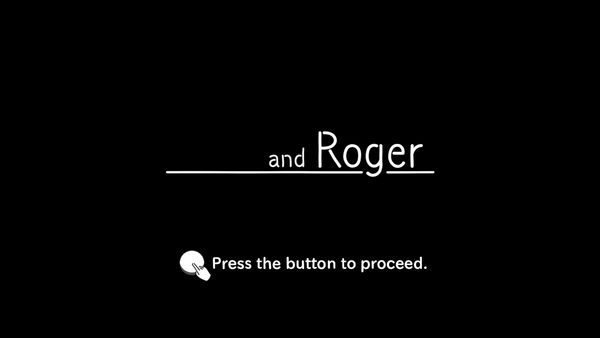
Before we start, just a heads up that this post is going to be full of spoilers for the short interactive fiction game and Roger. If you want to go in completely spoiler-free, this is how the store page describes it:
and Roger is an interactive novel that lets you see through the protagonist’s eyes–whether what she sees makes sense or not. It is comprised of three chapters and can be played in its entirety in about one hour.
Beyond this point, I am going to spoil the big twist of the game. In my opinion, I think it is necessary, but a lot of people would probably disagree with me here, including the game’s developers. This is your chance to stop reading and pick up the game for yourself for like a fiver.
This blog post is also going to touch on childhood sexual assault and dementia. It also describes a scene of extreme emotional distress within the game, and physical abuse against people with dementia.
Still with me? Okay, good.
Spoiling “and Roger”

The game and Roger is about dementia. You, the main character, are playing from the perspective of someone with dementia, and experiencing all the confusion, panic, and terror of not knowing why things are happening or who these people are or what is going on. I personally don’t have experience being around people with dementia and so I cannot speak to the accuracy of the depiction here, but I know some folks are sensitive to this. I personally think the store page and game’s introduction should forewarn you that this game is about dementia. I don’t think the game should leave it as a surprise twist you encounter partway through.
Let’s back up.
Opening acts of the game
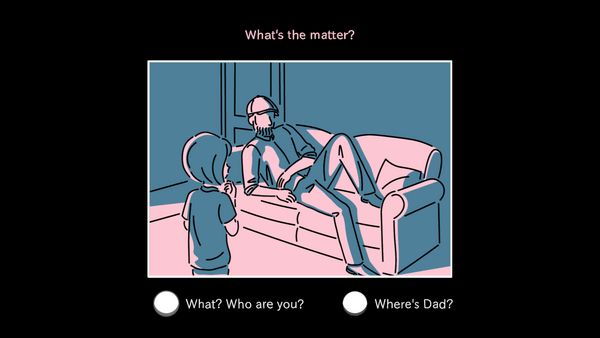
The game and Roger is broken into three chapters with a prologue, and as the store page says, can be beaten in about an hour. It is fairly straightforward and linear (i.e. there are no alternate routes or endings).
Its prologue and first chapter play almost like a horror suspense. The main character, a young girl, wakes up and gets ready for school like normal. But when she goes to her living room, she is shocked to find a strange man in her home instead of her father. This man does and says nonsensical things and forces her to eat disgusting food against her will. After eating the food, she apparently blacks out until it is evening, when the man forcibly puts her back to bed.
When she wakes up in the middle of the night, she finds herself in the bathroom where the man apparently removes her underwear. He tries to force her to take a pill, and refuses to answer when she asks what it’s for. She somehow breaks free from him and, in a wild panic, escapes the house and runs to a bakery. There, she apparently encounters her father, who buys her some baked goods before taking her hand and leading her safely home. End of Chapter 1.
Why the first chapter is so damn terrifying
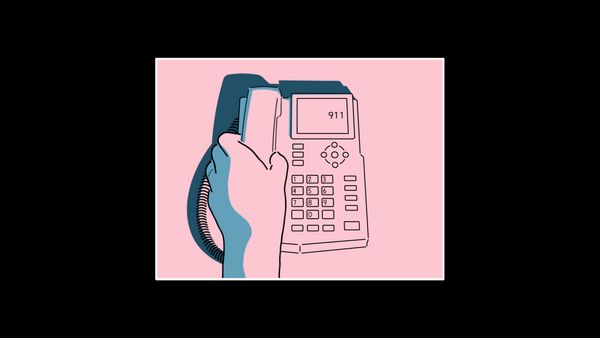
At this point in the game, you the player don’t know that you are seeing flashbacks mixed in with the distorted perspective of an elderly person with dementia. A lot of the first chapter is left to the player’s imagination to fill in the gaps. Is this man trying to drug her, either with the food or the pills? Why did he remove her underwear? Why does she keep blacking out? Is this about traumatic childhood sexual assault? You the player are left to imagine the worst for this scared young girl.
In my opinion, this is all quite effective at conveying the terror of the situation. I don’t know much about dementia, but I assume that most people with it don’t know that this is what they are going through when they have a panic attack like this. It must be genuinely terrifying to find apparent strangers in your house forcing you to do things against your will, and to have your brain jump to the worst possible scenario for what you are encountering.
Why ruin this with a spoiler?
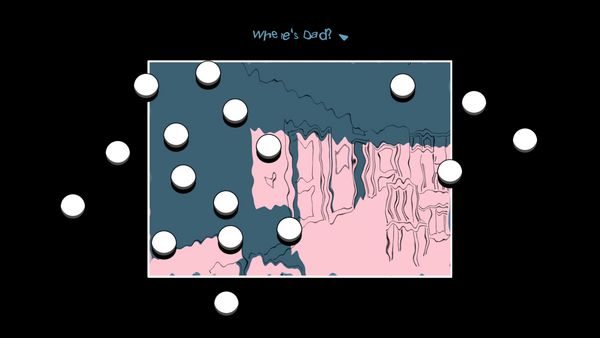
But I do have to wonder: is it worth maintaining that bit of authentically-held terror, at the cost of not giving adequate content warnings to mentally prepare folks for what they are about to experience? Would it be spoiling the game to give proper CWs in this instance? Do we owe it to people to let them know that this opening act is not actually about childhood rape?
The clash
On spoilers
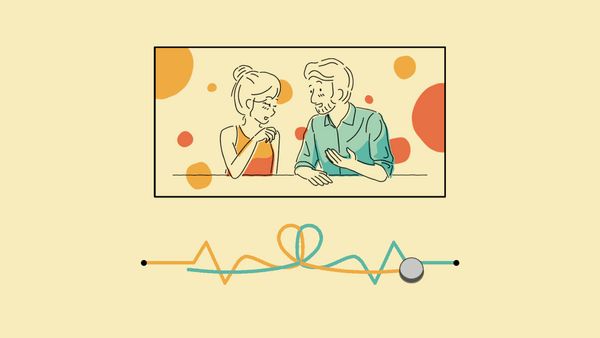
In my personal opinion, if a story is ruined by knowing the ending, I don’t think it’s a very good story. That’s just me, I am not speaking for anyone else here. But I personally look up summaries as much as I can before engaging with the full work because this gives me a framework with which to keep details and events in order in my mind. Because of this, I encounter a lot of spoilers, and that does not bother me in the slightest. Indeed, if I know there is a big twist coming up, that makes me look forward to the reveal even more.
I understand there are plenty of people out there who are not like this. They would prefer to be kept as much in the dark about something until they are able to experience it for themselves. To that end, I try to do the considerate thing and mark my spoilers, and tag my posts on social media so that they can be muted until folks are ready to engage.
On content warnings

In my personal opinion, people should be forewarned about any potentially upsetting content that may be within a story before they engage with it. This can be on a personal level; for example, letting a friend with arachnophobia know in advance that a game has big spider enemies. If a game contains or even hints at things like childhood sexual assault, that should be listed somewhere on either the store page or the opening screen. In any case, I think it is a good and kind thing to let people know about any potentially triggering topics before they engage with a piece of media.
Saying this, of course, inevitably leads to a lot of tedious whataboutism and questions of “Where do we draw the line?” And the answer is: I don’t know. There are billions of people in the world with their own individual triggers, and it’s pretty hard if not impossible to appropriately warn every single person of every single potential trigger in every single piece of media. Sure, okay. You got me there. I am still going to think it is kinder to try and reasonably warn people when you can.
What do you do when content warnings are spoilers?
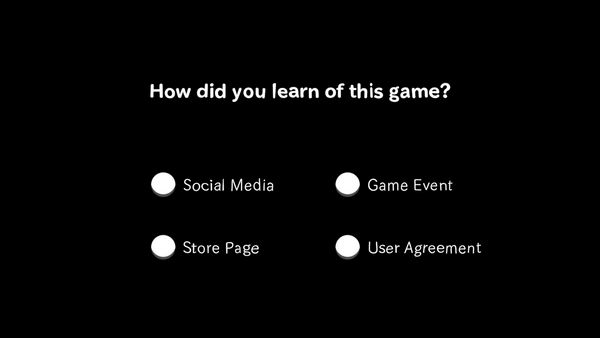
Given my above positions, you can correctly assume that I think content warnings trump any need to keep things spoiler-free.
I personally feel like engaging with stories as if they can be spoiled makes them so disposable; like once you know the ending or the twist, it has no more value to you. I think that sucks! I think knowing that and Roger is about dementia gives you a deeper appreciation for the way the prologue and first chapter are laid out, as well as let you emotionally prepare yourself for a topic that might be hard to deal with.
Content warnings are not labels telling people not to engage with something. They give important context to people who want to engage, but who would otherwise be immediately put off by a topic that can be deeply triggering.
and Roger should just say right up front that it is a game about dementia, full stop.
What is “and Roger” even about
On dementia being the twist ending

Look, I’m not going to lie, I don’t love it. When I finished the first chapter of and Roger, this is what I posted on Mastodon:
I suspect (and hope I’m wrong) that this is a story about dementia and/or being held in a psych ward
I already had my suspicions that this Japanese game would try to pull the usual “heartful” gut punch of making this all about the tragedy of dementia; specifically, in dealing with a loved one who has dementia, and a-bloo boo they are like a different, horrible person most of the time, but sometimes their True Self shines through and you remember how much you love them despite what a burden they are on everyone now, a-bloo. Believe me, I have encountered this particular brand of ableism and elder abuse in way too many stories. It’s become a genre unto itself. Boy do Japanese writers love dipping from this well.
On elder abuse being the REAL twist ending
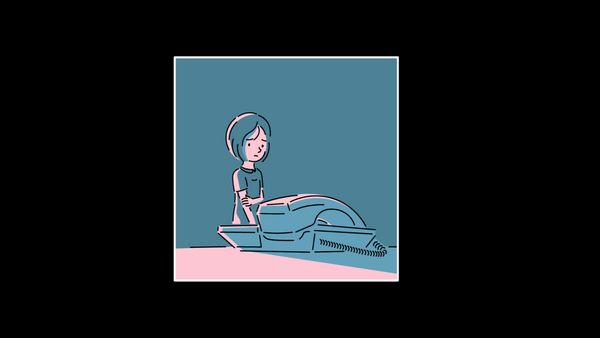
Upon completing the game, I posted:
“and Roger” does at least put you in the perspective of the person with dementia, and the genuine terror and confusion that a person with dementia may feel, and the terrifying and almost callous way their “loved ones” often treat them out of frustration (however understandable) that they won’t take their pills or won’t stop wandering the streets alone etc. So for that alone, that was definitely interesting and a welcome change of pace
I had to stop and take a breather when Roger admitted that he hit Sofia (protagonist). That’s a part of these dementia stories that goes underreported, I think, the abuse that patients face from family and caretakers (hospice workers, etc)
This is, of course, the backfilled story of what was happening in the first chapter: Roger forcing Sofia to take a pill, getting frustrated that she wouldn’t, and then hitting her. That was the moment when she fled to the bakery. It was not actually a traumatic flashback to a childhood rape; it was a recent incident when a panicked and confused Sofia was physically assaulted by her husband and caretaker.
Here, finally, we get a story told from the viewpoint of the victim, the person with dementia. This story is not about Roger, exhausted from years of dealing with his burden of a wife, reaching his limit and hitting her out of some understandable frustration. This is about Sofia, a scared and confused girl trapped in a place and body she doesn’t recognize, unsure of what is happening and why, and being terrorized and abused for not complying with orders that don’t make any sense to her.
This is, in my opinion, what sets it apart from the usual Japanese daytime TV shows. Maybe this is a lot of projection on my part; maybe I am being harsher on Roger than the game itself, which ultimately portrays him as needing to be comforted and forgiven by Sofia. But, gosh, what a breath of fresh air to have a story where the perspective about literally anything other than a person with dementia being a burden.
Stories don’t need to be didactic and “correct.” People are messy; they do terrible things to the people they love. Dementia is a sensitive topic because of the way it can bring out the worst in ourselves, make us frustrated and lash out at people we love and who don’t understand why this is happening. It is easier for us to imagine ourselves as Roger, the person at the end of his rope. Media very rarely puts us on the side of the person with dementia, because to do so would be to understand the terror inflicted by all the well-intentioned Rogers of the world.
I think and Roger is an incredible game. I didn’t even tell you about all the little interactive bits in it which, oh man, were also very cool, and made this relatively dialogue-light game connect so powerfully with its themes. Maybe I’ll write about that at a later date…
tl;dr
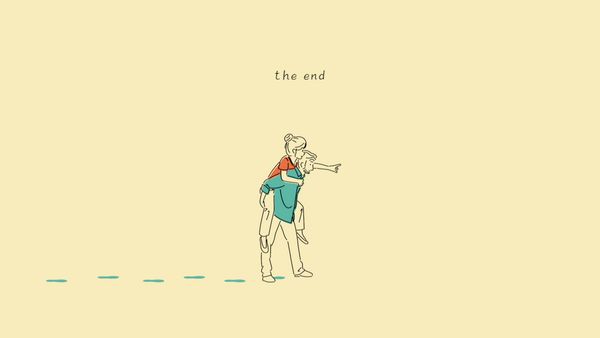
Just put content warnings on your games, people. Trust that what you’ve made will not be ruined by knowing one of its major elements in advance.